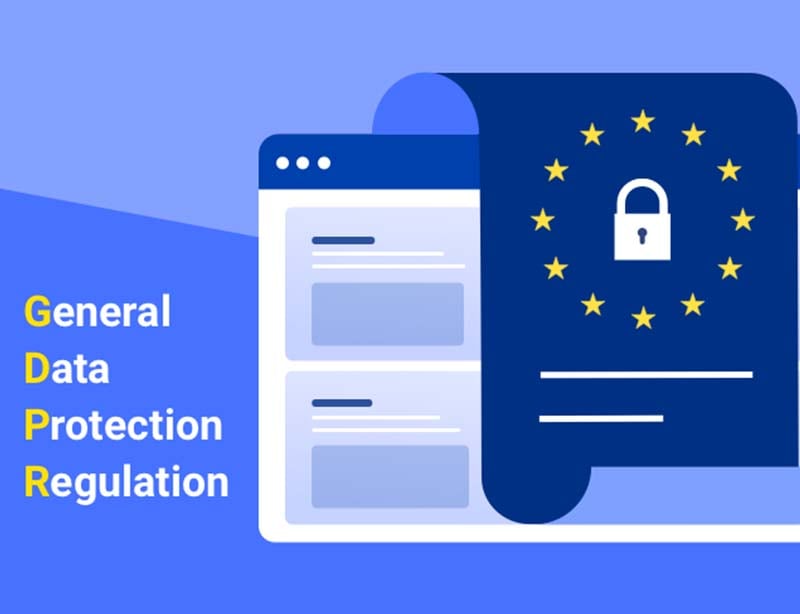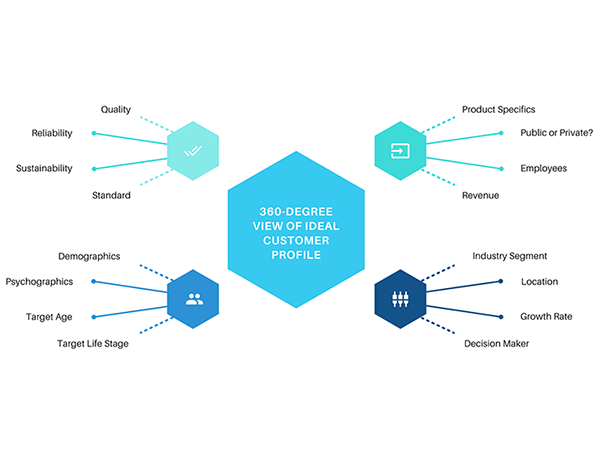KEY POINTS
- What exactly is GDPR?
- Keep track of the 8 fundamental rights as per GDPR regarding personal data and data privacy
- Impact of GDPR in Email Marketing! Ace your business growth along with data privacy compliance
- How to make it GDPR compliant? Follow these 6 steps to embark on a privacy-compliant email marketing
- Stay with the law to run successful email marketing campaigns!
What exactly is GDPR?
You've probably an idea over the General Data Protection Regulation (GDPR). If your businesses operate outside the EU, you may not know all the repercussions. Learn more about GDPR and GDPR compliant Email Lists.
The GDPR is widely regarded as the most significant and comprehensive data privacy policy in 20 years, and it represents an improvement over the EU's prior data protection act. This new rule aims to change the way businesses in every industry handle personal data by putting consumers liable for their own data processing. People can review and control who collects their data and its utilization for the first time.
Data breaches and data privacy violations now carry harsh consequences. From the first day, businesses must demonstrate that they are GDPR compliant and take steps to protect personal data. They can't acquire and use customer data without oversight or worded disclosures. Transparency is the art to win the game, a novel concept for many companies that have typically put data privacy on the right side of things, let alone warned people how their data is handled.
While GDPR compliance may appear daunting at first, we expect to see improved user/customer experiences, fewer data breaches, and increased trust between consumers and marketers when it comes to personal data in the long run.
Precisely, the General Data Protection Regulation, or GDPR, is a European privacy law that governs how personal data from EU citizens is acquired, utilized, and processed. Regardless of where the firm is situated, the law affects European companies and any business that targets European citizens or collects, uses, or analyses personal data of European individuals. This implies that the GDPR will apply to most enterprises that process EU citizens' data, regardless of their place or where their processing operations occur.
Keep track of the 8 fundamental rights as per GDPR regarding personal data and data privacy
The General Data Protection Regulation (GDPR) outlines eight user rights. If you don't respect these rights, you'll be subjected to the harsh consequences and heavy fines-
1. The right to access- People have the freedom to request access to their personal information. They may also inquire about how their information is used, processed, stored, or shared with third parties. If demanded, you must give a free electronic version of the personal details.
2. The right to be informed- Users must be informed and grant their explicit consent before their data is collected and used.
3. The right to data portability- Individuals can transfer their data at any moment from one service provider to another. The data must be transferred in a machine-readable format that is widely utilized.
4. The right to be forgotten- Users have the right to have their data erased if they are no longer clients or withdraw their permission to use their personal data.
5. The right to object- If a user disagrees with your use or processing of their personal information, they have the right to ask you to stop. This rule does not have any exceptions. As soon as the user submits their request, all processing must halt.
6. The right to restrict processing- Individuals have the right to request you to stop processing personal data. If they want, their data can stay intact.
7. The right to be notified- People should have the right to be notified if their personal data is harmed due to a data breach. It must be done within 72 hours of the breach being discovered.
8. The right to rectification- Customers may ask you to amend, rectify, or update their personal information.
If you comply with these rights on personal data and data privacy, all your email marketing efforts will bring good results in the era of strict data privacy laws. It is more about being transparent while using personal data.
Impact of GDPR in Email Marketing! Ace your business growth along with data privacy compliance
Many marketers believed that the GDPR marked the end of email marketing as when it was passed. GDPR requires you to be compliant if you collect personal data from EU citizens. If you don't follow the data privacy guidelines, you could face a fine of up to 4% of your yearly gross revenue, and fines are limited to 20 million Euros ($27.7 million in the United States). GDPR compliance does have a lot of impact on it. According to the global surveys, 85% of US businesses believe GDPR compliance standards put them at a competitive disadvantage with their European counterparts.
However, the United States was the least trusted country regarding data privacy rights in the same poll. Furthermore, 67% of customers in the United States believe the country should do more to protect their data privacy. GDPR compliance has the potential to enhance these unfavorable opinions significantly.
Although GDPR has influenced marketing in some other aspects, GDPR reoriented marketers on existing email best practices, reinforcing marketing campaigns for those who were previously focused on providing excellent customer experiences. These safeguards inform your subscribers about how they'll hear from you and how your subscribers prefer to communicate.
As we've seen, this puts your marketing efforts in an ideal position to interact with a genuinely interested audience, allowing you to send high-performing, engaging messages that influence your revenue. As marketers, you can now target and strategize with greater zeal, concentrating your efforts on what you already know about the clients. Client expectations can now actually make a difference in your businesses. This is how GDPR has changed and preserved email marketing to perform better.
How to make it GDPR compliant? Follow these 6 steps to embark on a privacy-compliant email marketing
Several GDPR laws apply specifically to email marketing. Here's how to comply with GDPR and generate a better email list with your email marketing.
1. Set-up opt-in forms- According to GDPR, if you utilize an opt-in form to increase the number of subscribers to your email newsletter, that opt-in form is a data collection method. This implies you'll need each user's informed consent before signing them up. Informed consent means informing the user about the terms of the agreement and obtaining verifiable permission through an affirmative action such as checking a box or selecting alternatives using the context menu.
Another consideration for making email GDPR compliant is whether you utilize single opt-in or double opt-in consent. Single opt-in's are GDPR compliant. When users click the submit option on your opt-in form, they are instantly enrolled to your list (depending on their consent). However, with double opt-in, clients aren't instantly subscribed to your email list. They'll get an email asking them to verify their intention to receive communications from you after opt-in. The second record of permission is created with a double opt-in.
2. Initiate a privacy policy- GDPR demands that you have a privacy policy that explains what data you collect from users and how you intend to use it if you send out emails. On your website, the privacy policy should be visible and easily accessible. Many experts advocate providing a link to your privacy policy in the footer of your website, on your opt-in forms, and emails. Above all, your privacy policy should include these three aspects-
- a) How you use the information
- b) How do you keep it secured
- c) How do you store it
3. Manage contact profiles appropriately- GDPR mandates that, in addition to obtaining consent from subscribers, you preserve a record of that consent to show that it was obtained. The user's name, the date of consent, what the subscriber consented to, information on the techniques used to obtain consent, whether consent was withdrawn, and a description of what the user was told when consent was given should all be included in these records. Consent will be void under GDPR laws if these records are not kept.
4. Customize GDPR friendly forms- You may create GDPR-compliant forms that are in sync with your brand. Edit the built-in GDPR text to sound natural, and obtain the marketing authorization you require. For hosted, embedded, pop-up, or landing page signup forms, GDPR fields are included. You can't refuse users access to the information because they don't wish to subscribe to your newsletter under GDPR. Consent must be "freely provided" under GDPR. While you can gather an email address to send lead magnets and other gated content, you must make it clear to consumers that signing up for your newsletter is not required to access the gated content or lead magnet.
5. Maintain Transparency in Your Content- Another crucial step toward GDPR compliance with email is to ensure that your content is accurate and truthful. The GDPR includes content standards that are intended to protect users. Only the content that the user agreed to be included in the email is delivered. So, suppose you received approval to send promotional emails about your new products or services. You'd be breaking GDPR guidelines if you sent promotional emails from a third party to your subscribers. Remember that any piece of content you wish to deliver to your subscribers requires approval. It's also important to remember that even if you use a third party for email marketing, you're still legally responsible for GDPR compliance.
6. Make opt-out easy- You must not only obtain informed consent through positive action, but you must also make it simple for users to revoke consent. One of the simplest ways to accomplish this is to include a prominent unsubscribe link in your emails. You have 30 days to remove a user after they revoke their consent. However, we recommend that you remove them right away. Users become irritated if they have opted out of a mailing list but continue to receive emails within the next 30 days. Opting users out immediately can help you maintain healthy client relationships.
Stay with the law to run successful email marketing campaigns!
Despite GDPR restrictions, email marketing remains the preferred marketing channel for businesses. Making your email GDPR compliant is simple; all it takes is planning and dedication, and the advantages are numerous. GDPR effectively compelled marketers to improve email marketing best practices and concentrate on providing a better user experience and better content. By providing subscribers with more information about the data you collect from them, why you need it, and how you want to use it, you give them the power to decide whether or not staying in touch with your brand is worthwhile. The more you build trust, the greater is the achievement. Here are the benefits you can look up to-
- A more condensed and focused list
- Increased conversions
- Better opening rates
- Improved delivery rates
- There are no more spam complaints
An audience genuinely interested in what you're offering
It may be unnerving if you're more concerned with quantity than content for your email list. Moreover, GDPR has demonstrated since its implementation in 2018 that this type of disclosure and consent request results in a better email list filled with subscribers who are genuinely interested in your products, services, and content. So if you go as per the regulation, it might get you to better opportunities ahead.
InfoGlobalData will wipe off all your worries over GDPR compliance. We guarantee 100% data privacy compliance pertaining to GDPR, CAN-SPAM, CASL, CCPA, and ESIL. If you are looking for reliable database providers, InfoGlobalData is a good option. So start your marketing avenues right away; we have an opt-in, reliable, verified email database to guide you throughout your business goals. To know more about data privacy laws and email marketing trends, you can stay connected to us.



































